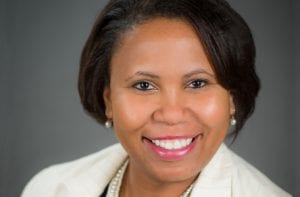Wharton Takes Over Top Spot on New U.S. News MBA Ranking

Harvard loses its crown, Wharton ranks first, and Purdue stumbles in new U.S. News & World Report “Best Business Schools” ranking.
The annual U.S. News & World Report Best Business Schools ranking, largely regarded as the most prominent MBA ranking system in the United States, debuted its newest annual listing, with The University of Pennsylvania’s Wharton School taking the top mantle.
The Philadelphia metro business school ascends past Harvard Business School and the University of Chicago Booth School of Business—both tying for first last year. Both schools took a minor tumble to the third overall spot, sitting in a three-way tie with the MIT Sloan School of Management. Stanford’s Graduate School of Business lept into the second overall spot, which comes just a few months after the Silicon Valley school maintained its status as the best in the world according to the Financial Times.
U.S. News & World Report Top 10 Business Schools
| School | This Year's Ranking | Last Year's Ranking |
|---|---|---|
| Wharton (University of Pennsylvania) | 1 | 3 |
| Stanford Graduate School of Business | 2 | 4 |
| Harvard Business School | 3 (tie) | 1 (tie) |
| Booth (University of Chicago) | 3 (tie) | 1 (tie) |
| Sloan (Massachusetts Institute of Technology) | 3 (tie) | 5 |
| Columbia Business School | 6 (tie) | 9 |
| Kellogg (Northwestern University) | 6 (tie) | 6 |
| Haas (UC Berkeley) | 6 (tie) | 7 (tie) |
| Yale School of Management | 9 | 11 (tie) |
| Fuqua (Duke University) | 10 | 11 (tie) |
Within the top 50 business schools, this year’s ranking largely resembles last year’s. In fact, only three business schools—the University of Pittsburgh Joseph M. Katz Graduate School of Business, the Iowa State University Ivy College of Business, and the The Manderson Graduate School of Business at the University of Alabama—moved into the top 50 since last year. The three business schools to fall out of the top 50 were Rutgers Business School, the Haslam College of Business at The University of Tennessee, Knoxville, and the University of Utah David Eccles School of Business. All three moved down the ranking by at least 10 spots each.
U.S. News Ranking Rising Business Schools
No school saw a better year-end turnaround than the aforementioned Iowa State University Ivy College of Business. The Midwest business school moves from the 79th spot last year to 47th this year; a 32-spot increase. On the news of the new ranking, Dean David Spalding says in a press release, “This significant rise in the ranking is a direct result of the quality work our faculty do every day in the classroom. At a time when some universities are dropping their full-time MBA programs, the Ivy MBA continues to excel. Our internationally known faculty provide a top-notch MBA experience that helps our MBA graduates advance their careers to the next level.”

Iowa State University’s Ivy College of Business earns the biggest ranking bump from U.S. News this year, moving up 32 spots from last year.
Ten schools in the top 100 saw double-digit rankings jumps, with Iowa State accruing the greatest increase. The University of Kentucky Gatton College of Business and Economics, the Oklahoma State University Spears School of Business, and the Babson College F.W. Olin Graduate School of Business all saw a rise of at least 20 spots this year as well.
Purdue, Case Western Stumble
On the opposite end of this year’s ranking is Purdue University’s Krannert School of Management, falling a total of 21 spots from 53rd last year to 74th this year. The University of Kansas School of Business and the Saunders College of Business at RIT join Krannert as this year’s three biggest falling schools, each dropping at least 20 spots respectively. Like most of the annual U.S. News rankings, the placement fluctuation is much more apparent the further and further down the list you go, with schools in the top 50 largely remaining stable.
U.S. News 2020 Ranking Methodology
To formulate its ranking, U.S. News & World Report analyzed “475 MBA programs accredited by the Association to Advance Collegiate Schools of Business International.” A total of 367 schools responded to its surveys, but only 131 schools made the final ranking “because they provided enough of the required data on their full-time MBA program that were needed to calculate the full-time MBA rankings, based on a weighted average of the indicators.” Those indicators, with the weighted values, are as follows:
Quality Assessment (0.40)
• Peer assessment score (0.25)
• Recruiter assessment score (0.15)
Placement Success (0.35)
• Mean starting salary and bonus (0.14)
• Employment rates for full-time MBA program graduates
Student Selectivity (0.25)
• Mean GMAT and GRE scores (0.1625)
• Mean undergraduate GPA (0.075)
• Acceptance rate (0.0125)
Did The Methodology Changes Affect This Year’s U.S. News Ranking?
Last September, calls for changes in the MBA ranking methodology seemed to be answered by several large publications, including U.S. News. The company’s Chief Data Strategist, Robert Morse, noted, “There is an active and ongoing debate about how to best measure quality in education, and we pay close attention to that debate. Over time, our ranking model has put more emphasis on outcomes measures … As part of this evolving process, we’ve wanted to measure whether schools were successful at serving all of their students, regardless of economic status.”
The overarching issue seemed to lie within a framework that continually rewarded students and business schools that actively enrolled more and more students from affluent families. In response, U.S. News decreased its ranking value of acceptance rates, which previously rewarded schools that were more selective. Now, as seen above, the weighted value of acceptance rates is less than 1 percent.
However, the changes in the formula did not seem to bare much tenable change in the outcomes. The top 50 schools were largely unchanged, with only minor variances. Several schools, such as Iowa State and Oklahoma State were handsomely rewarded in the new ranking, moving up at least 20 spots each. However, schools rising and falling by 10, 20, even 30 spots in a given year isn’t a new occurrence. In fact, last year, nine schools in the top 100 rose at least 10 rankings from the previous year.
Stay tuned to MetroMBA for more information and analysis of this year’s MBA rankings.
UVA, Oxford, CEIBS Rise in All-New Financial Times 2019 Ranking

The latest Financial Times MBA ranking is officially out, with several international schools rising closer and closer to the top in 2019.
Babson MBA Alum Wins Virtual IAN Global Startup Competition for $250,000 in Funding

Finding funding for a startup isn’t easy. Not only are there few angel investors looking to fund early-staged startups, but time and distance can make it even more difficult to succeed on the fundraising path. That’s why Babson College F.W. Olin Graduate School of Business works together with the Indian Angel Network (IAN), India’s first and the world’s largest business angel network, to develop a new type of startup competition: the IAN Global Startup Competition.
“We are pleased to host such a vibrant initiative that demonstrated the breadth of talent and truly innovative ideas being created by Babson startups,” Padmaja Ruparel, co-founder of IAN and Founding Partner of the IAN Fund, says in a press release.
“For more than ten years, IAN has worked to advance the transformative power of entrepreneurship across the globe, opening the door for emerging businesses to draw on in-depth operational and strategic mentorship.”

3 Professional Life Hacks from The ‘Master of Connections’, and More – Boston News

Let’s explore some of the most interesting stories that have emerged from Boston business schools this week.
3 Professional Life Hacks from a Billionaire Introvert – MIT Sloan Newsroom
In a recent podcast with MIT Sloan School of Management Principal Research scientist Andrew McAfee, LinkedIn co-founder Reid Hoffman thoroughly explained how one person can maintain massive success despite their habits as an introvert.
Hoffman explains three simple professional life hacks that help his process, of which include:
- “Deliberately leave some room for serendipity.”
- “Find someone who knows you well enough to refer you to me and knows me well enough that I care about the reference.”
- “Embrace your skillset.”
On the latter, Hoffman says:
“What I learned was that private company boards are a very good use of my skillset because more or less … they go ‘here’s what we’re working on. That’s like sport, that I’m like ‘oh, I enjoy this.’ How do we solve a customer acquisition problem, how do we solve an executive hiring problem, how do we solve a competition problem, how do we solve a need to reinvent the product problem; all of these kinds of things. That’s what makes this game hard, and I enjoy that.”
You can read more from the Hoffman podcast here.
Work Your Magic: Erica Feldmann ’12MA Makes Witches Her Business – Simmons Blog

Erica Feldmann ‘12MA, Hauswitch Home + Healing’s Head Witch in Charge
The Simmons Blog recently profiled Hauswitch Home + Healing’s Head Witch in Charge Erica Feldmann, ‘12MA, who founded HausWitch to be a “hyper-feminist, hyper-local and hyper-inclusive” space for local, independent makers, crafters, and witches to meet, shop, and build community.
The Salem, MA-based Feldmann “focused her gender/cultural studies degree on the oppression of witches from a feminist perspective” so her use of the word—which one acronym could mean “Woman In Total Control of Herself”—and her choice of location are both very deliberate.
“I think the word ‘witch’ in its essence is female. I think it’s about power and challenging the dominant culture. Who better to do this than the witch? Not from a place of being a victim, but from a place of strength.”
Feldmann adds, “Being a woman in business, I literally surround myself with other women who are very invested in the project of lifting each other up.”
You can read more about Feldmann and HausWitch here.
Productive Slacking with Anirudh Dhebar – Babson Blog
Babson College F.W. Olin Graduate School of Business Professor of Marketing Anirudh Dhebar recently unpacked an FT article entitled “Managers can draw a line between slack and slacking” as part of a weekly informal student chat he engages in at the Olin Café on Mondays evenings and Tuesday afternoons “to address things that don’t get touched upon in class.”
Dhebar posits whether “it is better to slack or should we often be slacking—a time taken to unwind.” In other words, is it healthy for managers to incorporate slacking into everyone’s daily schedule or should employees practice self-care and slack off the clock?
“If you think it is the managers responsibility to inculcate a culture of slack, why should it not be the individual’s responsibility or the company’s as a whole?”
Dhebar describes their day as a series of different slacks. For instance, “Class is a form of slack where [I] push students to think beyond the case and [my] students’ perspectives make [me] think differently.”
You can read more about Dhebar’s perspective in the Babson Blog.
5 Questions with the Babson Olin Dean of Admissions

In our latest installment of the MetroMBA “5 Questions” series, we speak with Dr. Monica Moore, Dean of Admissions at Babson College’s F.W. Olin Graduate School. She talks with us about the type of MBA applicants Olin looks for, its hands-on approach, and explains the importance of applicant engagement.
What type of MBA students is Babson Olin most interested in?
“Babson is #1 for entrepreneurship so, in some ways, that gives some insight into the type of student. But it’s not always the person who has already started or who plans to singularly start their business. When we speak about entrepreneurship, it’s also entrepreneurial thinking. So, while Babson is known for entrepreneurship, there is an act of being entrepreneurial that also lends itself nicely to the type of MBA student that we seek and who does well here.
Characteristics that we look for include:
- Someone who is a quick study because in order to be entrepreneurial you have to use data and facts but also be very swift in understanding going to market and reiterating as you go.
- Having less fear—or more courage—to not stop at what could seem like the first right answer. Those who are entrepreneurial know that something may seem like a fine product, but that’s not the end. You need to go to market, test, learn, and get feedback from the customer. Then, you develop version 2.0 and continue to reiterate as you go. This is the type of mindset and personality style that goes well with the Babson MBA.
The common denominator is being entrepreneurial, but it’s really about how you understand the act of being entrepreneurial that makes the difference in terms of what that looks like in an individual student.”
What is one area of the Babson Olin MBA student experience that you want applicants to pay attention to?
“The robust nature and the activities present in all of Centers. We have many Centers, and while a number schools do, some approaches follow more of a “look but don’t touch” attitude.
Our Centers are very hands-on, offering programming on a regular basis, not periodic or once-in-a-while basis. It’s a regular part of the Babson experience that you’ll interact with our many Centers. Female students will interact with our CWEL Center (Center for Women’s Entrepreneurial Leadership) for women in entrepreneurship. Others will interact with The Lewis Institute about social entrepreneurialism.
We have different Centers and they are part of the Babson experience that’s so ingrained in who we are that it would be peculiar for someone to come to graduate school at Babson and not be engaged with a Center.”
What is one thing a Babson Olin MBA candidate can do for the best chance of getting accepted?

Dr. Monica Moody Moore, Dean of Graduate Admissions
“Know the school that you’re applying to. I can’t say enough about not only doing the homework about what you see on the website—a number of students do that already—but taking personal engagement to the next step. Engage with an alum. Talk to or meet a current student. Even if you can’t meet up in person, which is not always possible (we have lots of students in lots of places), you can still meet up virtually to have some real tangible knowledge of the school. You have to do your homework beyond the website.
In particular, alumni engagement is vital. We consider it a hallmark of the Babson experience. They engage with students at the beginning, not just when you’re about to graduate; it’s a part of the whole experience. In addition, our faculty make phone calls to prospective students as a routine part of who we are. Smaller schools can often offer these unique opportunities with more agility, but it’s also something we’ve made a key part of our culture.
So, for applicants to improve their chances of getting accepted, the more you know and the more you have experience prior to even applying or while you’re in that process, the stronger applicant you’ll be. For example, different insights and understandings will help you write your essay and position yourself. Often, it’s not just about admissions but also about gaining scholarship dollars, so the more you know because you’ve engaged, the better applicant you’ll be.”
Are there any new courses, clubs, specialty tracks, or events that MBA applicants should know about?
“We have a new center that was just launched: the Weissman Foundry Center. It has a physical footprint as well as a scholarly footprint. It’s about innovation across undergraduate and graduate programming, and it’s another way that design thinking, innovation, and social entrepreneurship are all coming together under one hub and umbrella. We’ll have events there, seminars, programming, and more.”
What fun activity should every student do while living in MA?
“There’s always the sporting events—I can’t leave that out. Between baseball, football, and hockey, which we’re so known for, there’s always an event to attend. But, I also hear of our students talk about the cultural experience. There’s the Freedom Trail, which explores historic sites and visits a collection of museums, churches, meeting hours, and parks. Then, there’s the Boston Duck Tours, which give people an understanding of Massachusetts as a state and Boston as a part of that. I’m a transplant to the New England area, and I’ve been on the Duck Tour, and I always take visitors on it as well.

“I’m a transplant to the New England area, and I’ve been on the Duck Tour, and I always take visitors on it as well,” Moore says.
Find a way to get the facts about MA in a fun and light-hearted way. We like to encourage people to get out into the city between Boston and Cambridge and all its nuances and just explore. People think of sports most often, but don’t forget the history of Massachusetts as a state and the role that the region plays.”
You can find more information on admissions at the Babson College F.W. Olin Graduate School of Business here.
Working Harder, Amazon Wages, and More – Boston News

Let’s explore some of the most interesting stories that have emerged from Boston business schools this week.
Knowing What Your Boss Earns Can Make You Work Harder – Harvard Business Week
In new research co-authored by HBS’s Zoë B. Cullen and UCLA’s Ricardo Perez-Truglia, it was discovered that “knowledge of managerial compensation seemed to coax more effort out of workers, [but] the exact opposite [is true] when employees learned what peers were making.”
“How Much Does Your Boss Make? The Effects of Salary Comparisons” finds that “these externalities can have important implications for the provision of incentives within the firm and for pay transparency.”
According to the Harvard Business Week article, the paper could have significant ramifications in terms of how companies “rethink the equity of their own compensation plans and the level of salary transparency they wish to maintain.”
You can read the full HBW article here.
What’s Behind Amazon’s Wage Hike? – MIT Sloan Newsroom
At a moment where Amazon has received intense criticism of its “labor practices and low wages” exemplified by Senator Bernie Sanders’ Stop BEZOS Act, the e-commerce behemoth recently announced that its minimum wage for all U.S. employees will be $15 per hour, effective November 1.
MIT Sloan Associate Professor of Operations Management and Good Jobs Institute founder Zeynep Ton explains the political strategy behind Amazon’s decision.
In addition to Amazon’s desire to position itself as a “worker-friendly company,” Ton explains, “a lot of retailers are finding it difficult to attract people, especially going into the holiday season. [Outlets like] Macy’s and Target are looking to hire tens of thousands, and it’s going to be harder for them now. They’ll have to up their game, not just for the holidays but in general.”

Amazon Founder, Chairman, and Chief Executive Officer Jeff Bezos, the world’s richest man, has become part of the focus on Amazon’s questionable business practices in recent years.
Ton adds, “The investors are very different, and their tolerance for low profitability is much lower for general retailers than for Amazon. It’ll be challenging for other companies, and I hope they start to look for ways to make their people central to their success.”
You can read more about the move from Amazon here.
Why Aren’t Companies Getting Better At Breakthrough Innovation? – Babson Thought & Action
For their new book, Beyond the Champion: Institutionalizing Innovation Through People, Babson College F.W. Olin Graduate School of Business professors Gina Colarelli O’Connor, Andrew Corbett, and Lois Peters posit that “looking to grow and succeed, getting better at innovation is a constant, nagging, and critically important challenge.” Beyond the Champion offers a blueprint for organizational change.
In an excerpt from the book, the authors write:
“Strategic innovation is a “team sport”: it’s so big that no one person has the skill set to do it all. Individuals want defined roles that allow them to take advantage of their innovative strengths—roles that give them some autonomy while still providing guidance for where they should invest their energies. The passion model is great, but it’s not enough in a large, established company.”
You can read the full Babson Thought & Action article here.
